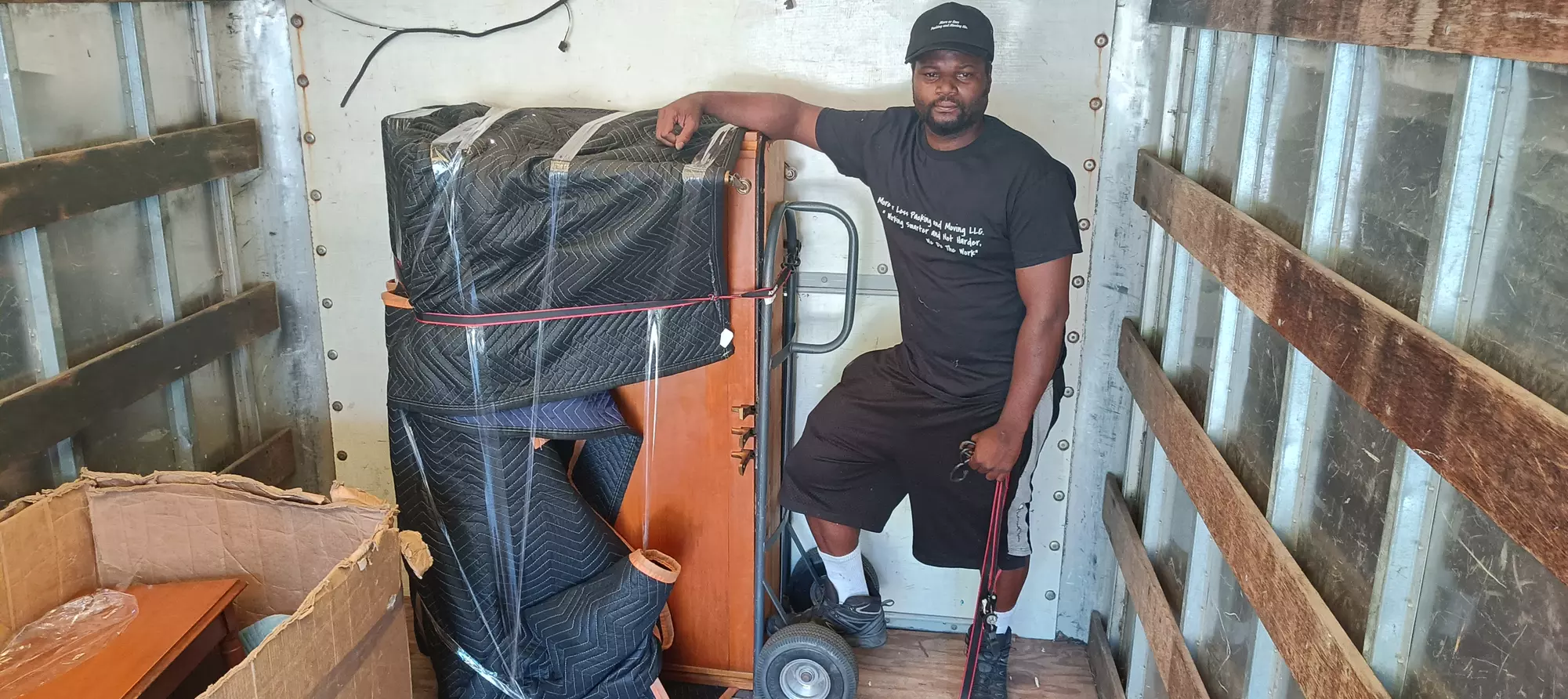Recognizing the Inclusions of moving and Freight Forwarding worldwide of International and domestic Delivery
Guiding with the intricacies of moving and Freight forwarding can be tough. Both processes involve distinctive treatments and requirements that are critical for effective transportation. Comprehending the differences in logistics, documents, and danger administration is crucial for people and businesses alike. This knowledge can considerably influence the effectiveness and security of deliveries. Numerous are uninformed of the details parts that influence the overall experience and outcomes. What aspects should one consider to guarantee a smooth changeover?
The Basics of moving and Freight Forwarding
moving and Freight forwarding are basic parts of the worldwide logistics sector. They help with the transfer of items and individual possessions throughout worldwide and residential borders. moving mostly includes the relocation of individuals or families, incorporating business and household demands. It typically includes packing, packing, moving, and unloading products at the destination. In comparison, Freight forwarding is concentrated on the shipment of goods, commonly in mass, using numerous transport modes, such as land.freight, air, or sea forwarders work as intermediaries, coordinating logistics to assure prompt delivery while steering with complex policies and customs treatments. Both processes require cautious preparation, organization, and communication to ensure efficiency and decrease interruptions. Comprehending these fundamentals is essential for any person included in logistics, as they prepared for advanced elements of shipping and transportation management.
Trick Elements of Freight Forwarding Solutions
Freight forwarding solutions include numerous vital parts that assure smooth transport of goods. Secret responsibilities of Freight forwarders consist of managing logistics, coordinating shipments, and handling custom-mades clearance. Additionally, comprehending vital delivery documentation is imperative for compliance and reliable activity of cargo.
Freight Forwarder Responsibilities
A trusted Freight forwarder plays a crucial role in working with the transportation of goods, making sure that deliveries are taken care of effectively and in compliance with regulations. Their duties include various vital jobs, including picking suitable transportation courses, discussing Freight rates, and taking care of logistics. They serve as middlemans between providers and carriers, guaranteeing that cargo is effectively packaged and classified for safe transit. Additionally, Freight forwarders track deliveries, supplying updates to clients concerning the status and anticipated distribution times. They additionally evaluate and take care of threats linked with transport, advising insurance coverage choices as needed. By assisting in interaction and paperwork, Freight forwarders enhance the shipping procedure, minimizing possible delays and boosting total supply chain efficiency.
Delivering Documents Fundamentals

Understanding Customizeds Clearance and Paperwork
Accurate documents is vital in the custom-mades clearance process, as it ensures conformity with various guidelines. An introduction of customizeds regulations highlights the complexities dealt with by shippers and Freight forwarders. Usual clearance challenges can significantly influence shipment timelines and costs, making understanding this aspect vital for reliable logistics.
Relevance of Accurate Documents
Guiding with the intricacies of global delivery calls for a keen understanding of custom-mades clearance and the essential role of paperwork. Accurate documents is necessary for making certain that deliveries abide by policies and reach their locations right away. Appropriately prepared papers, including costs of lading, commercial invoices, and packing checklists, assist in smooth communications with customizeds authorities. Inaccuracies can lead to delivery hold-ups, fines, or also confiscation of items. Extensive documentation aids in monitoring deliveries and fixing disputes. Consequently, services engaged in moving and Freight forwarding need to prioritize meticulous documents techniques to navigate the complex landscape of worldwide shipping properly. This diligence not just streamlines procedures yet additionally improves consumer complete satisfaction by making certain prompt shipment.
Customs Regulations Introduction
Guiding custom-mades guidelines is a vital element of worldwide profession that straight influences the success of moving and Freight forwarding operations. Reliable customs clearance needs an understanding of numerous laws, consisting of tolls, duties, and import/export constraints. Precise documentation is necessary, as it ensures conformity with legal demands and facilitates the efficient motion of items across boundaries. Secret records commonly consist of industrial billings, packing listings, and costs of lading, which provide thorough details about the shipment. In addition, customs brokers play a vital duty in guiding intricate guidelines, functioning as intermediaries between personalizeds and shippers authorities. By maintaining detailed knowledge of custom-mades processes, organizations can greatly lower delays and lessen prices related to international shipping.
Typical Clearance Obstacles
Many difficulties can occur throughout the customizeds clearance procedure, commonly making complex the activity of goods throughout borders. One considerable problem is insufficient paperwork, which can result in delays and penalties. Importers and merchants must ensure all needed documentation, such as invoices, packaging listings, and certificates of origin, is complete and accurate. Furthermore, inconsistencies in appraisal can trigger examination from personalizeds authorities, resulting in added tasks or inspections. Language barriers might also position challenges, as miscommunication can bring about misunderstandings relating to policies. In addition, changes in customizeds laws can produce confusion, demanding consistent watchfulness by shippers. Inevitably, overcoming these clearance challenges requires extensive preparation and a clear understanding of customizeds needs to facilitate smooth worldwide transactions.
Product Packaging and Identifying Needs
Often forgotten, product packaging and labeling requirements play a vital role in the delivery process, guaranteeing that products are shielded and easily identifiable throughout their journey (shipping freight). Appropriate product packaging safeguards products from damages throughout transportation, while likewise facilitating effective handling and storage space. Using proper materials, such as bubble cover, foam, or sturdy boxes, can prevent damage and loss.Labeling is similarly vital. Precise and clear labels share vital information, including the location, dealing with instructions, and materials. Labels should follow laws certain to global and residential shipping, which might include unsafe products identification or personalizeds declarations.Moreover, standardized labeling practices simplify the tracking process and improve overall logistics performance. By adhering to product packaging and labeling demands, companies decrease the threat of delays, damages, or misdelivery. Eventually, these practices contribute substantially to the success of moving and Freight forwarding procedures, making sure a smooth delivery experience for all events involved
Tracking Deliveries: Relevance and Techniques
Reliable packaging and labeling established the structure for successful delivery monitoring, but tracking deliveries is similarly necessary in the shipping procedure. Shipment monitoring provides real-time presence, which helps customers and companies keep an eye on the development of their products. This openness improves client contentment, because clients can stay educated concerning shipment timelines and any type of potential delays.Several techniques assist in efficient monitoring. Barcode scanning is an usual approach, utilizing distinct identifiers to monitor bundles throughout their trip. In addition, general practitioner innovation enables accurate location monitoring, permitting timely updates and boosted logistics administration. Many shipping companies currently supply electronic systems and mobile applications that supply customers with simple access to tracking information.The value of delivery tracking can not be overemphasized; it decreases the threat of lost or damaged items, improves functional effectiveness, and cultivates depend on in between recipients and shippers. Integrating reliable monitoring techniques is important for successful residential and international shipping procedures.
Insurance policy Options for Your Item

Securing insurance coverage for products en route is an important factor to consider for people and companies alike. Insurance options differ based on the kind of delivery, value of items, and certain dangers entailed. Common types include provider responsibility, which covers loss or damages while in transit, and full-value insurance policy, giving considerable protection for the total worth of the goods.Shippers may additionally think about marine insurance coverage for worldwide deliveries, shielding versus risks connected with sea transport. It is vital to assess the specific needs of the shipment and review the terms of any policy.Furthermore, understanding exemptions and constraints is important to stay clear of potential spaces in coverage. Shippers need to involve with insurance policy experts to check out tailored solutions that fit their unique situations. Inevitably, spending get redirected here in the appropriate insurance policy can alleviate monetary dangers and offer peace of mind throughout the delivery process.
Choosing the Right moving and Freight Forwarding Service
When selecting a moving and Freight forwarding service, it is crucial for companies and individuals to carefully assess their particular requirements and concerns. Aspects such as the quantity of items, location, and timeline play a significant role in this decision-making process. see here Investigating various providers is a good idea; contrasting their solutions, pricing, and consumer testimonials can disclose useful insights.Additionally, it is needed to take into consideration the experience and experience of the solution copyright in handling certain types of cargo, specifically for global deliveries that may involve customs clearance. Openness in rates, consisting of any kind of concealed charges, should additionally be scrutinized.Furthermore, reviewing the degree of client assistance offered is vital, as timely communication can minimize problems throughout transit (international shipping). Ultimately, validating the availability of insurance choices ensures that items are secured throughout the shipping procedure. By taking these steps, services and people can make educated choices that line up with their logistics needs
Frequently Asked Inquiries
What Kinds Of Goods Can Be Shipped Internationally?

Exactly How Do Shipping Prices Range Different Service Providers?
Shipping costs vary significantly in between carriers as a result of elements such as service rate, cargo type, range, and extra solutions used. Each provider's rates model mirrors these variables, influencing general delivery expenses for consumers.
Can I Ship Hazardous Products or Perishables?
Shipping hazardous products and perishables is subject to rigorous guidelines. Providers frequently call for certain packaging, labeling, and documents. Shippers have to ensure conformity with international and local legislations to avoid charges and guarantee risk-free transportation.
What Should I Do if My Shipment Is Delayed?
When confronted with a shipment hold-up, one need to first get in touch with the provider for updates. After that, review any notices got, examine different services, and maintain all events informed regarding the scenario to decrease disruptions.
Exist Weight Boundary for Delivery Containers?
Weight limits for shipping containers differ depending on aspects like container dimension and delivery laws. Usually, standard containers have a maximum gross weight of around 30,000 to 32,000 kilograms to ensure check my site safe transportation and handling. In comparison, Freight forwarding is focused on the shipment of goods, frequently in bulk, utilizing numerous transport settings, such as air, sea, or land.Freight forwarders act as intermediaries, coordinating logistics to guarantee timely distribution while steering with complex regulations and personalizeds treatments. Key responsibilities of Freight forwarders include managing logistics, working with shipments, and handling personalizeds clearance. A trusted Freight forwarder plays a necessary function in coordinating the transport of products, ensuring that deliveries are dealt with efficiently and in compliance with laws. Effective packaging and labeling established the foundation for successful delivery administration, but tracking deliveries is just as crucial in the delivery process. Several delivery companies currently offer electronic platforms and mobile applications that give users with very easy access to tracking information.The significance of delivery tracking can not be overstated; it minimizes the danger of lost or harmed goods, boosts operational performance, and cultivates depend on between carriers and recipients.